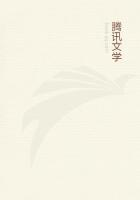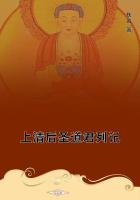Nothing came of the Pantisocracy, for want of money to pay fares to the New World. Coleridge supported himself by giving lectures, and in 1797 published Poems. They included his "Religious Musings," which contain expression of his fervent revolutionary hopes. Then he planned a weekly paper, the Watchman, that was to carry the lantern of philosophic truth, and call the hour for those who cared about the duties of the day. When only three or four hundred subscribers had been got together in Bristol, Coleridge resolved to travel from town to town in search of subscriptions. Wherever he went his eloquence prevailed; and he came back with a very large subscription list. But the power of close daily work, by which alone Coleridge could carry out such a design, was not in him, and the Watchman only reached to its tenth number.
Then Coleridge settled at Nether Stowey, by the Bristol Channel, partly for convenience of neighbourhood to Thomas Poole, from whom he could borrow at need. He had there also a yearly allowance from the Wedgwoods of Etruria, who had a strong faith in his future. From Nether Stowey, Coleridge walked over to make friends with Wordsworth at Racedown, and the friendship there established caused Wordsworth and his sister to remove to the neighbourhood of Nether Stowey. Out of the relations with Wordsworth thus established came Coleridge's best achievements as a poet, the "Ancient Mariner" and "Christabel."
The "Ancient Mariner" was finished, and was the chief part of Coleridge's contribution to the "Lyrical Ballads," which the two friends published in 1798. "Christabel," being unfinished, was left unpublished until 1816.
With help from the Wedgwoods, Coleridge went abroad with Wordsworth and his sister, left them at Hamburg, and during fourteen months increased his familiarity with German. He came back in the late summer of 1799, full of enthusiasm for Schiller's last great work, his Wallenstein, which Coleridge had seen acted. The Camp had been first acted at Weimar on the 18th of October, 1798; the Piccolomini on the 30th of January, 1799; and Wallenstein's Death on the 10th of the next following April. Coleridge, under the influence of fresh enthusiasm, rapidly completed for Messrs. Longman his translation of Wallenstein's Death into an English poem of the highest mark.
Then followed a weakening of health. Coleridge earned fitfully as journalist; settled at Keswick; found his tendency to rheumatism increased by the damp of the Lake Country; took a remedy containing opium, and began to acquire that taste for the excitement of opium which ruined the next years of his life. He was invited to Malta, for the benefit of the climate, by his friend, John Stoddart, who was there. At Malta he made the acquaintance of the governor, Sir Alexander Ball, whose worth he celebrates in essays of the Friend, which are included under the title of "A Sailor's Fortune" in this little volume. For a short time he acted as secretary to Sir Alexander, then returned to the Lakes and planned his journal, the Friend, published at Penrith, of which the first number appeared on the 1st of August, 1809, the twenty-eighth and last towards the end of March, 1810.
Next followed six years of struggle to live as journalist and lecturer in London and elsewhere, while the habit of taking opium grew year by year, and at last advanced from two quarts of laudanum a week to a pint a day. Coleridge put himself under voluntary restraint for a time with a Mr. Morgan at Calne. Finally he placed himself, in April, 1816--the year of the publication of "Christabel"--with a surgeon at Highgate, Mr. Gillman, under whose friendly care he was restored to himself, and in whose house he died on the 25th of July, 1834. It was during this calm autumn of his life that Coleridge, turning wholly to the higher speculations on philosophy and religion upon which his mind was chiefly fixed, a revert to the Church, and often actively antagonist to the opinions he had held for a few years, wrote, his "Lay Sermons," and his "Biographia Literaria," and arranged also a volume of Essays of the Friend. He lectured on Shakespeare, wrote "Aids to Reflection," and showed how his doubts were set at rest in these "Confessions of an Inquiring Spirit," which were first published in 1840, after their writer's death.
H. M.













